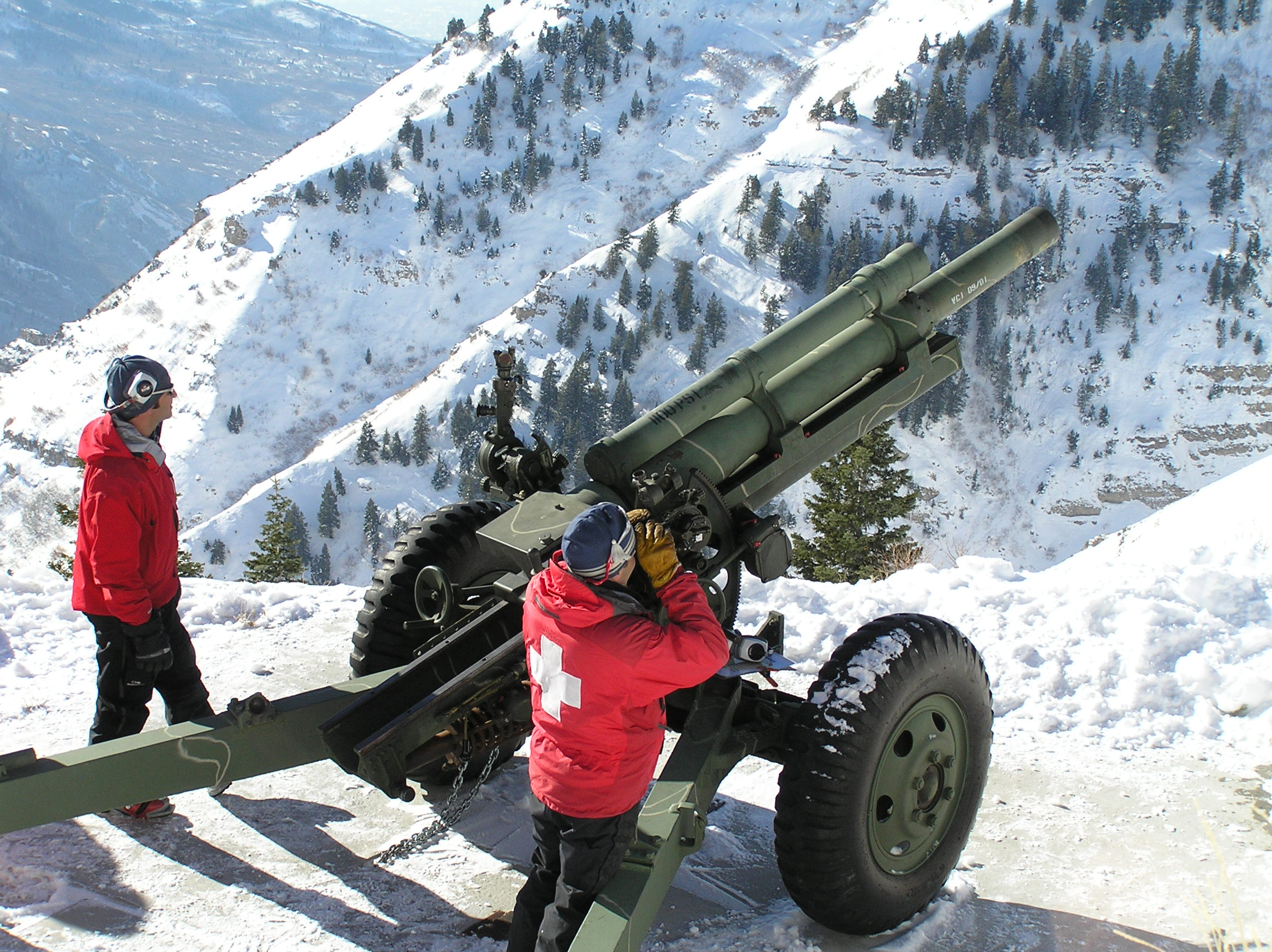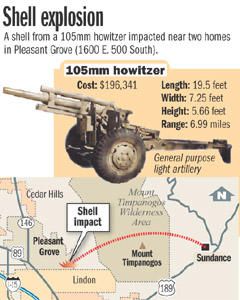
In March 2005, Lori and Scott Connors’ 3-year-old son was lying on their living room floor watching television when a mortar exploded in their backyard. Deadly flying shrapnel penetrated their home and flew right over his little head. He was covered in broken glass and extremely frightened—had he been standing up it would have been a completely different story.
There were several large holes in the walls, shredded pieces of couch and chair fabric in the living room, and pieces of shrapnel embedded in the upstairs bathroom wall. Broken glass lay everywhere and a sheet of plywood replaced the window. Scott and Lori Connors’ shed in their backyard was in pieces, sprawled around a boulder-size crater in their lawn. The Connors family home looked like it had been bombed—because it was.
What has just been described is the state of the Connors’ Pleasant Grove, Utah home after a Utah Department of Transportation 105 mm Howitzer mortar shell, used for avalanche mitigation work, missed its mark and landed in their backyard in March of 2005. The story was originally reported by Deseret News, detailing that a car across the street from the Connors’ home was also damaged from the blast along two other houses in the vicinity of 1600 East and 500 South on the Pleasant Grove bench.
“It was a miracle no one was killed or injured,” Scott Connors told a reporter with Deseret News.
The blast was over three miles off course. Utah Department of Transportation officials took responsibility for the misfire, saying that the event was “a rarity,” even though they set off 560 rounds of explosive material every year in an attempt to control avalanche danger in the Provo, American Fork, Big and Little Cottonwood canyons, as reported by Deseret News.
Investigators for the Federal Bureau of Investigation were initially called to the scene until they determined that no terrorist or malicious intent was involved. UDOT spokesman Geoff DuPaix said the shells came pre-packaged in bundles, but that human error was the cause, blaming the misfire on too much gunpowder and a failure to follow proper procedure. UDOT Deputy Director Carlos Braceras commented on the incident at the time:
“I’m confident that had our procedure been followed properly, this incident would not have occurred,” Braceras said.
UDOT avalanche control workers follow a step-by-step procedure prior to firing each shot. One of the steps calls for the assistant gunner to observe the loader “prepare the round by removing the correct number of (propellant) bags” from the shell. In this case, the loader did not remove the correct number of propellant bags from the shell. Additionally, the assistant gunner was not observing the loader, according to avalanche-center.org.
The Connors counted their blessings that no one was injured or killed and UDOT, who claimed responsibility for the incident, established additional safeguards that have prevented such a devastating miscalculation from ever occurring again. Thankfully, this lesson in avalanche mitigation history was one that resulted in property damages—not the loss of human life.

Avalauncher
Also:
A two-chambered pneumatic (compressed gas) cannon used in avalanche control work. It is probably the most popular civilian weapn in use. The trajectory is varied by altering the firing angle and the nitrogen pressure. It’s disadvantages include a short range and poor accuracy in strong winds.
Also a howitzer doesn’t fire a mortar shell it fires a projectile from a barrel with riffling and is way more accurate over long distances, a mortar shell is for trench warfare, it has a high trajectory but not very accurate. A round fired from a Howitzer is very accurate over long distances but has a lower flatter trajectory , plus a misfire means the primer failed to ignite the gunpowder and the projectile doesn’t leave the barrel. It can very dangerous to have a misfire especially with a high explosive round such as a 105 mm Howitzer round .
Everything I stated here is easily available on the internet.
Whoops! I thought that was a Howitzer! Can you explain the difference?
Bad form showing ski patrollers using an avalauncher as the cover photo for a story about Utah Dept of Transportation overshooting a target with a howitzer.